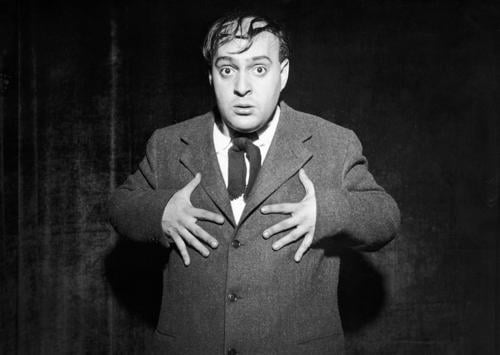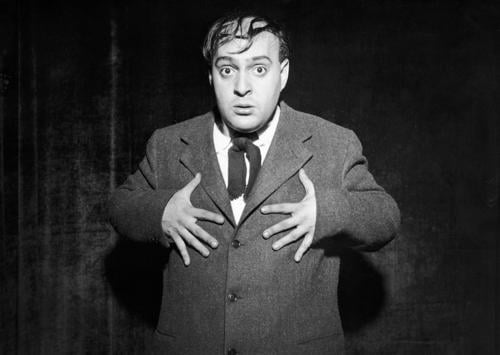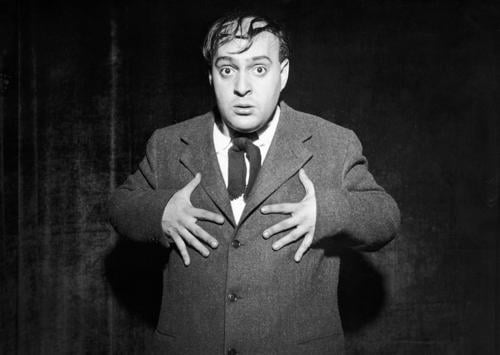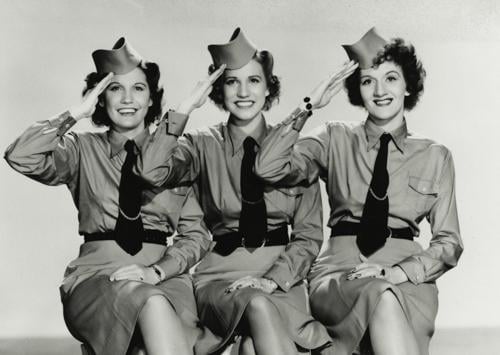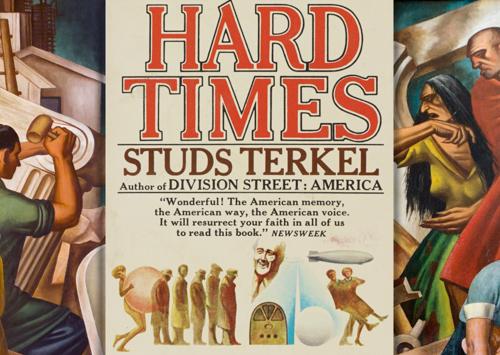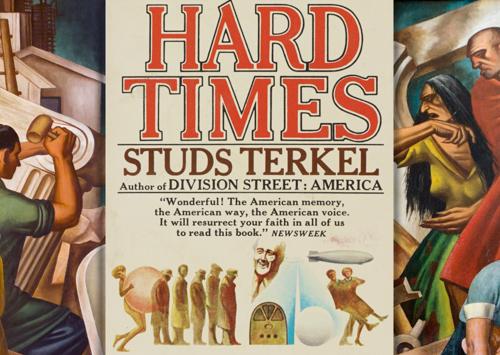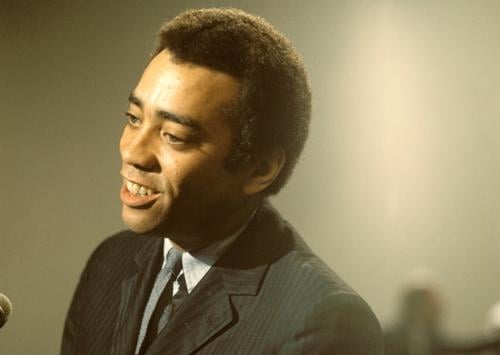Listen to New Voices on Studs Terkel our partnership with 826CHI-here! Read the Story
-
Zero Mostel discusses the play "Rhinoceros" and acting theory ; part 2
Aug. 14, 1961 Zero Mostel talks about acting theory, French and American theater differences, and the reflection of art in society.
-
Zero Mostel discusses the play "Rhinoceros" and acting theory ; part 1
Aug. 14, 1961 Zero Mostel talks about acting theory, French and American theater differences, and the reflection of art in society.
-
Zero Mostel discusses acting and improvisation
Oct. 1, 1976 Contrary to what some people believe, Zero Mostel says that being an actor is not that easy of a job. Everything one knows, Mostel explains, becomes apart of who you are. The more one knows, the better his/her work will be.
-
Thom Bishop discusses the musical revue "Suburbs of Heaven"
Feb. 7, 1979 Interviewing the cast of the musical revue "Suburbs of Heaven," songwriter Thom Bishop, singers Marty Peifer and Megon McDonough. Songs include "Mr. Arthur's Place," "Why Not Talk to Me?" "The Telephone Song," "Just Because You Didn't See Me," "Suburbs of Heaven," "Times I Tried to Love You," "Amateur Night/New Year's Eve," and "Somebody Feels the Water."
-
Terkel interviews Maxene Andrews of The Andrews Sisters
Aug. 23, 1982 Maxene Andrews reminisces over Andrews Sisters songs with Studs Terkel. She acknowledges the heavy influence the Boswell Sisters played in the creation of their image. She relays musical stories surrounding songs in Abbott and Costello such as "Bugle Boy" from their movie "Buck Privates". How they found the song "Mir Bist Du Schon" and Sammy Cahn and Saul Chaplin helped with the lyrics. How song pluggers brought The Andrews Sisters "Tip-Pi-Tin". How "Apple Blossom Time" helped an injured soldier at Oak Knoll Hospital upon his return to the states.
-
Terkel comments and presents "Hard Times: an oral history of the great depression" ; Program 5 ; part 1
1971 Presenting "Hard Times: An oral history of the great depression": "Bonnie laboring boy" with Joe Morrison, Evelyn Finn and Jose Yglesias (program V).
-
Terkel comments and presents "Hard Times: an oral history of the great depression" ; Program 15; part 1
1971 Presenting "Hard Times: an oral history of the great depression": "A gathering of survivors" with Joe Morrison, Evelyn Finn, Jose Iglesias, Bob Stinson, Oscar Heline, Eml & Ruth Loriks, Buddy Blankenship, Mary Owsley, Sally Rand, Jerome Zerbe, John Beeche (promgram XIII)
-
Studs Terkel comments and presents the Sophiatown Church of Christ the King ; part 3
1963 Presenting performances at the Sophiatown Church of Christ the King while Studs was in South Africa. They talked how they brought folk music back to South Africa.
-
Studs Terkel comments and presents the Sophiatown Church of Christ the King ; part 2
1963 Presenting performances at the Sophiatown Church of Christ the King while Studs was in South Africa. They talked how they brought folk music back to South Africa.
-
Studs Terkel comments and presents the Sophiatown Church of Christ the King ; part 1
1963 Presenting performances at the Sophiatown Church of Christ the King while Studs was in South Africa. They talked how they brought folk music back to South Africa.
-
Skip Kennon and David Rounds discuss the play "Herringbone"
Oct. 21, 1981 Skip Kennon wrote the music for "Herringbone", a one-man musical where all ten parts are played by the actor David Rounds. Madness, depression and schizophrenia are discussed as possible themes of the play.
-
Shay Duffin discusses his performances of Mr. Dooley and Brendan Behan
May. 25, 1988 Shay Duffin discusses and performs excerpts from his one-man play, “According to Mr. Dooley.” Duffin chronicles some background about Mr. Dooley and Brendan Behan and discusses how he found himself interested in portraying these characters. Includes a test tone lasting about 30 seconds that is part of the archival record as a representation of how broadcasters prepped their tape. Content Warning: This conversation includes racially and/or culturally derogatory language and/or negative depictions of Black and Indigenous people of color, women, and LGBTQI+ individuals.
-
Presenting music with Oscar Brown, Jr
Jun. 6, 1977 Music performance by Oscar Brown, Jr.
-
Patrick Henry and cast discuss the plays he's directing "To Life" and "What Do You Want to be When You Grow Old"
1984 Interviewing the company of Free Street Too with Pat Henry, Free Street Theater founder and producer. Free Street Theater is an arts outreach organization that provides workshops in writing, theater, music and dance and stages performances for populations


